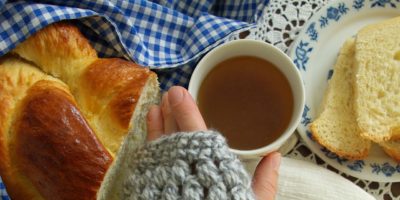Savoring Words about Words
Language as intoxicant, and as home
Some of the very best writing can be about writing itself. Take, for example, the new anthology Hebrew Writers on Writing (Trinity University Press, $24.95), edited by Peter Cole, noted poet, translator, and MacArthur Foundation Fellow. The pieces assembled here, translated by Cole and several others, enable the English-reading audience to make the acquaintance of both prominent and lesser-known Hebrew writers.
Cole’s introduction presents one of the most elegant short surveys of the modern Hebrew revival. Cole makes clear the national and aesthetic crucible in which isolated early Hebrew writers found themselves; for them, Hebrew was “a kind of substitute homeland.” Contemporary Hebrew writers, more diverse in both background and subject matter, and much more secure in their language’s official national status, nevertheless raise aesthetic concerns that connect them to their literary forebears. Such a dynamic conversation across generations is precisely the editor’s goal.
Cole has combed all manner of sources — interviews, diaries, poems, stories, essays, speeches, letters — in order to gather some of the finest voices of Hebrew literature of the past century. Ten women are included among the dozens of pieces, each contextualized with a brief biography. The poets Rahel, Esther Raab, and Lea Goldberg anchor the opening decades of the 20th century. Raab, the first native Israeli Hebrew poet, reveals that she was shaped not only by the thistles and thorns of her rustic upbringing, but also by the Arabic words and songs of her surroundings. Goldberg, on the other hand, describes the difficult predicament of being a translator when some in Israeli society resisted European cultural influences.
Among the more contemporary writers represented here, the poet Yona Wallach takes up feminism directly in an interview conducted shortly before her death in 1985. She claims that “[a] man can’t reach that same sort of creation of life that a woman can,” yet she also speaks more broadly to literature’s need to connect to reality. In an implicit critique of early Hebrew literature’s ideological objectives, Wallach declares that “[l]iterature should help us understand our lives” in a personal rather than national sense. The prose writer Ronit Matalon offers a personal musing about her imaginative process, and Shulamit Hareven — the Hebrew Language Academy’s first woman member — also weighs in with a serious essay about the evolution of Hebrew. Demonstrating the collection’s theme of advice-giving across the generations, pieces by the poets Zelda and Dahlia Ravikovitch address younger poets with wry wisdom. Hebrew Writers’ final contributor is Haviva Pedaya, a religiously observant poet and scholar of mysticism who contemplates the threats posed to religious language.
The experience of reading Hebrew Writers on Writing can best be evoked through one of the quotes attributed to Devora Baron (1887-1956), the earliest woman writer cited in this anthology: “What is a good story? When you read it, you feel that you have to linger a while after each and every clause, as with sipping a vintage wine, and when you finish reading, as when you finish drinking, you feel yourself slightly intoxicated.” The extraordinary pieces in this book expose what Pedaya calls the state of “fear and trembling” felt by writers on the verge of sending words out into the world.
Hannah S. Pressman is a doctoral candidate in modern Hebrew literature at New York University and a visiting lecturer in Jewish Studies at the University of Washington.


